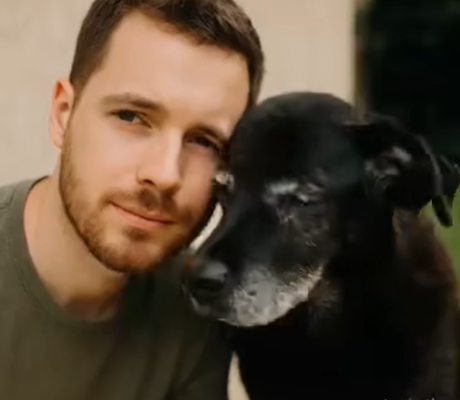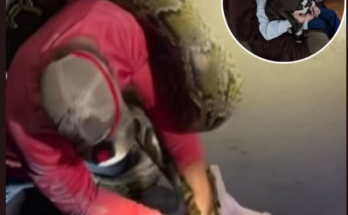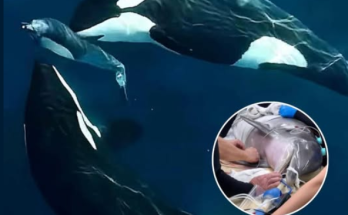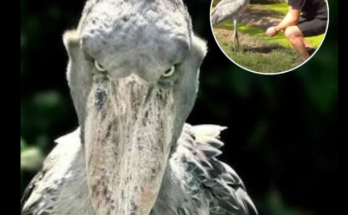In his hand, he clutched a slip of paper with the address—already damp from the fine November drizzle. A worn-out sign that read «Tail-Wagging Friend» hung crookedly, as if it too were tired. His soaked jacket clung to his back, but he paid it no mind.
The door creaked open, letting him into the warmth inside—a warmth laced with the scent of dogs and bleach. A strange, melancholy combination.
“Good afternoon!” greeted a young woman with a bright name tag: Marina, Volunteer. “How can I help you?”
“For a puppy,” Alexey managed, his voice tense. “I want to adopt a small dog.”
“Wonderful!” Marina lit up. “We just got some new arrivals! Some are tiny babies, and others are about three months old—very clever and playful!”
He nodded silently and followed her down a long corridor. On either side—eyes. Amber, blue, nearly black. Joyful, sorrowful, pleading. Furry faces pressed up against the bars. He tried not to look.
Here they are, our little ones!” Marina gestured toward a spacious pen where puppies tumbled over each other—fuzzy balls with clumsy paws. “You can choose any one…”
But Alexey was already looking elsewhere.
In the far corner, behind a separate gate, lay an old dog. Her muzzle was gray, her back hunched. She didn’t even move as he approached—only her tail gave the slightest twitch before going still again.
Who’s that?” he asked, lowering his gaze to the pen.
Marina sighed deeply.
“That’s Lada. She’s twelve. Almost blind. Her former owners dropped her off, said they didn’t have time to care for her anymore. Wanted a younger dog.”
There was a dull disappointment in her voice, but behind it—pain. Alexey didn’t reply. He just stared at Lada.
“Can I approach?”
“Of course,” Marina nodded. “But she doesn’t react much anymore. And to people… well, she’s almost indifferent now.”
He slowly crouched down next to the pen. Lada turned her head just slightly. Her eyes, clouded with a pale haze, looked in his direction. They looked through him—but there was something in that gaze. Something achingly familiar. The same quiet wisdom his grandmother had in her final days. The same resignation to fate, that waiting where hope no longer lived. His jaw tightened.
“How long has she been here?”
“About two months,” Marina shrugged. “No one even looks at her. Everyone wants young, energetic dogs. But her…”
Alexey ran his hand along the bars. Lada didn’t flinch, didn’t growl. She simply allowed him to touch her head.
In that moment, he understood everything.
“Are you sure?” Marina asked, surprised. “You came for a puppy…”
He didn’t take his eyes off Lada. Not long ago, he had a clear plan: get a small dog to raise, to walk, to bring new meaning to life. But now…
“Yes,” he said calmly. “I’ll take her.”
Marina hesitated.
“You should know… Lada needs special care. Medication. Her vision is nearly gone, and her joints are in bad shape. She’s not just a dog—she’s like an elderly relative.”
He gave a half-smile.
“I know what that’s like.”
Something in his voice silenced Marina’s objections. She looked at him more closely and said quietly:
“Then let’s start the paperwork. But first—spend a little more time with her. I’ll unlock the pen.”
When the gate opened, Lada didn’t rush to him. She rose slowly, with effort, every movement a victory of will. He saw her brace herself on her front paws, her hind legs trembling. There was a nobility in her movements.
“Come here, girl,” he whispered, holding out his hand.
The dog took a few cautious steps and touched his fingers with her nose. No licking, no tail wagging—just accepting his scent.
“She’s calm,” Marina observed. “Doesn’t bark without reason. Her old owners appreciated that… until she got old.”
“Why did…” Alexey started, but Marina understood.
“They said she became a burden. Always wanting to go out, bumping into furniture… They had her for twelve years. Then—just gave her up. You wouldn’t believe how many stories like that I hear.”
Alexey kept stroking Lada. She leaned gently against his leg. Her fur was dull, worn in places. But cared for—the shelter saw to that.
“I’ll get her documents, passport, and care instructions,” Marina said, heading to the front desk. “You’ll need to sign that you’re taking her permanently. And we take a photo with the new owner for social media. Is that okay?”
“Sure,” Alexey nodded. It didn’t matter.
While she filled out the forms, he spoke softly to Lada. Told her about his home, the quiet in the apartment, the nearby park where they’d walk. Of course, the dog didn’t answer—but she stayed close. As if she too felt a connection had formed.
Soon everything was ready. Marina brought over an old leash and collar.
“These are hers. Left by her previous owners. There’s also a blanket and a bowl. Take them.”
As she fastened the collar, Lada seemed to come alive. Her ears perked up, her eyes seemed a bit clearer. As if she understood—something was changing.
“Ready?” Alexey asked. Lada stepped forward, then again. Her gait was slow, but steady.
“We rarely took her out,” Marina admitted. “Volunteers walked her in the backyard, twice a day. We don’t have the time or hands. The old ones… they’re not a priority.”
Not a priority. Just like his grandmother in hospice… Old, forgotten, inconvenient…
“She will be now,” he said firmly.
Outside, the drizzle continued. Lada pressed close to his leg.
“Do you know where she’ll sleep yet?” Marina called after him. “I can recommend a good pet store around the corner…”
“I’ll figure it out,” he said over his shoulder.
He already knew.
By the wall in the living room, where his grandmother’s armchair used to be—before he removed it, unable to look at it after her death.
At home, Lada carefully explored the apartment. She sniffed everything, memorizing it, sometimes bumping into corners, but pressing on. No sounds, no barking. Just quiet inspection. Alexey watched her, feeling something melt inside him.
“Hungry, probably?” he said, opening the fridge. “Let’s find something for you.”
He warmed up a chicken breast, chopped it finely, and poured water into a deep bowl.
“Lada, dinner!”
But she didn’t respond. Alexey frowned and approached.
“Lada?..”
Still no reaction. Only when he gently touched her head did she turn slightly, those cloudy eyes looking his way.
And then it hit him.
“She’s not just almost blind… she can hardly hear either,” he said softly.
He didn’t know whether the volunteers knew. Or hadn’t noticed. Or hadn’t thought it mattered. He felt a surge of anger. “Not a priority.” That was their explanation.
He gently led Lada by the leash to the bowl. She sniffed a bit, then began eating—slowly, delicately, as if the memory of home hadn’t faded completely.
“It’s going to be okay,” Alexey said, stroking her back. “Tomorrow we’re going to the vet. We’ll figure out how to help you. We’ll fix everything.”
She finished and gently nudged his hand. In that moment, for the first time since his grandmother’s death, he felt—it wasn’t empty anymore. Not hollow. Something had quietly lit up inside.
The next morning, he woke with the sense that someone was in the room. He opened his eyes—Lada lay on the rug beside the bed. For a moment, he was confused. Then he remembered—and smiled.
“Good morning,” he said, lowering his hand.
She sensed the movement and slowly approached. Her tail gave a faint twitch—but he noticed. And it felt like a sign.
He found a clinic with great reviews and immediately booked an appointment. The woman on the phone spoke warmly and attentively:
“Bring her at two. Dr. Savelieva will see you. Don’t worry, we’ll take a look at everything.”
For the first time in a long while, Alexey felt: this morning was worth waking up for. For someone who needed him. Like his grandmother once did. And now he understood—he wasn’t just looking for a dog. He was looking for someone who would need him.
And he found her—in the last place he expected.
“Just look at this!” Dr. Savelieva beamed, showing the exam results. “She has cataracts, yes—but early-stage. Her vision can be saved!”
Three weeks had passed since Lada first entered his apartment. Three weeks of adapting, warm evenings, eye drops, and a special diet. Today—final results of the first treatment course.
“She looks older than she is,” the doctor said, “but twelve isn’t a sentence. Her hearing is more complicated—we’ll do more tests. But the vision—we can treat it. Not perfect, but she’ll stop bumping into furniture, start recognizing faces.”
“Really?” Alexey knelt beside Lada, gently petting her. “You hear that? You’ll be able to see again.”
Lada tilted her head slightly, as if trying to grasp his tone. And even if she couldn’t hear the words—something in her responded.
“We’ll draw up a full treatment and rehab plan,” Dr. Savelieva said, opening her notebook.
Back home, Alexey put drops in Lada’s eyes. She stood calmly—she was used to it. Then he brought out her special food—the one the doctor had recommended.
“Tasty?” he asked, watching her eat. “It’s healthy, that’s for sure.”
Lada lifted her head, as if recognizing his voice. Alexey realized—he was talking to her more and more, like to a person. Like his grandmother used to talk to her cat.
When she finished eating, she slowly walked over to him. She now knew every corner of the apartment, navigated with ease. But most importantly—she had learned how to find him, even when he didn’t call. As if she sensed him.
He leaned down, scratched behind her ear. She leaned against his leg. Then—for the first time since leaving the shelter—she gently wagged her tail. Alexey smiled. A real, warm smile.
“Alexey, you’ve changed so much!” his college friend Katya looked at him with genuine surprise. “A month ago, you were in such a slump.”
They’d run into each other in the park. Alexey was walking Lada. She moved slowly beside him, sniffing the grass.
“Don’t exaggerate,” he said, embarrassed.
“And who’s this?” Katya bent down to look at Lada.
“Lada. My…” He paused. “Friend.”
Katya smiled warmly.
“How long has she been with you?”
“Almost two months.”
They chatted a bit. Katya talked about work, mutual friends. Alexey listened and nodded.
“You know,” he said quietly, “after my grandmother died, I kind of disappeared. I’d been with her for six years. At first just helping, then more and more. She became the center of my life. Then—emptiness. Like someone turned out the light.”
Katya said nothing, just nodded.
“And then Lada came.”
He told her how he came for a puppy—and left with a blind old dog. Katya listened without interrupting.
“And yesterday,” he continued, “a miracle happened.”
He was making breakfast. Lada lay nearby. Suddenly, he dropped a fork—it clattered loudly on the tile.
The dog flinched and turned toward the sound.
Alexey froze.
“Lada?” he called.
Her ears twitched. He called louder:
“Lada!”
And she stood. Came to him. Looked directly—at his face. She saw. She heard. Not perfectly—but better. Much better.
He dropped to his knees, arms wide. Lada came, nudged him, licked his cheek, and wagged her tail with joy. Like a young, healthy dog.
And he, a grown man, began to cry. Like a child. He hugged her, buried his face in her fur, and cried—from relief, from warmth, from happiness. These were the first tears since the funeral.
“And yesterday,” he told Katya with a smile, “the thing the doctor didn’t dare to hope for happened. Lada began to hear. And see. Not perfectly, but she knows me now.”
“That’s incredible,” Katya said sincerely. “Like a real miracle.”
“It’s not a miracle,” he shook his head. “Just care. Patience. The right treatment.”
He looked at Lada, who was sniffing the bark of a tree.
And he smiled. For real.



